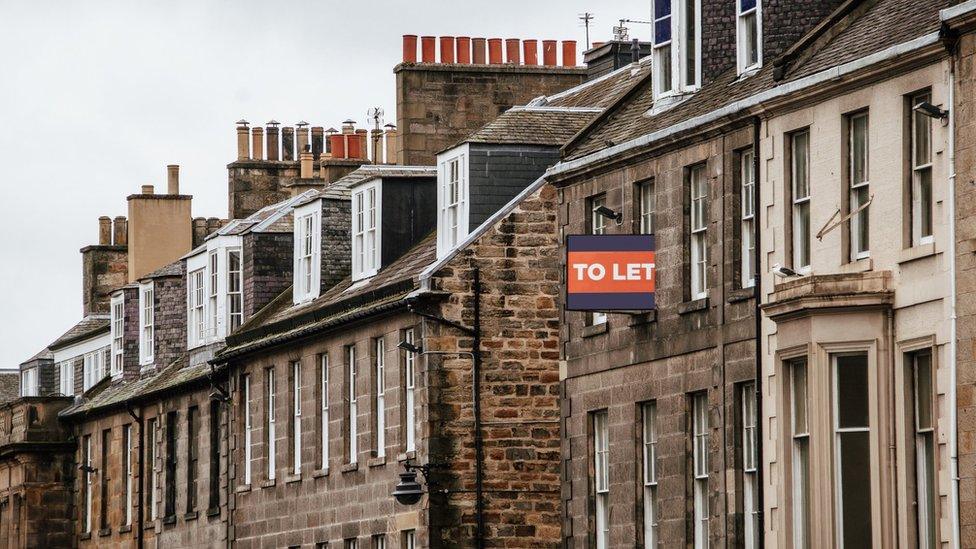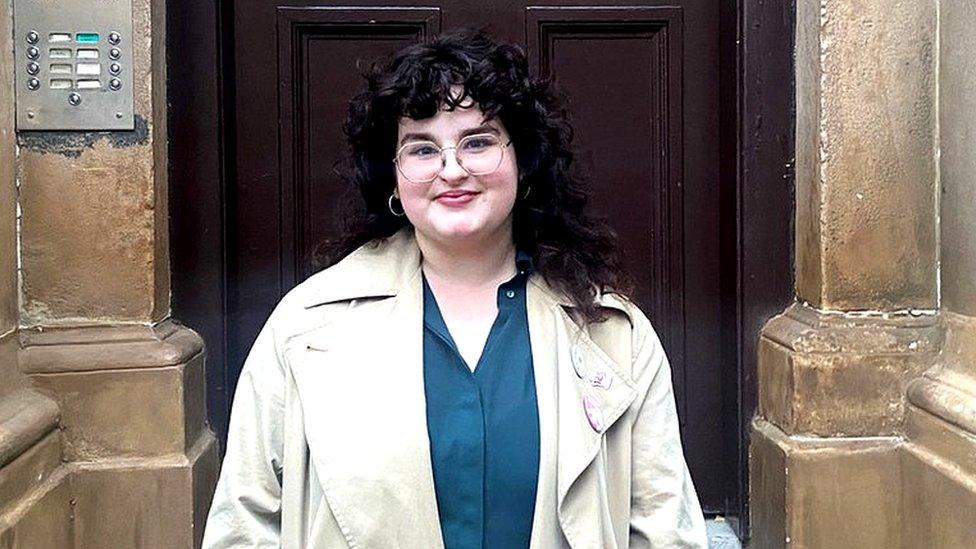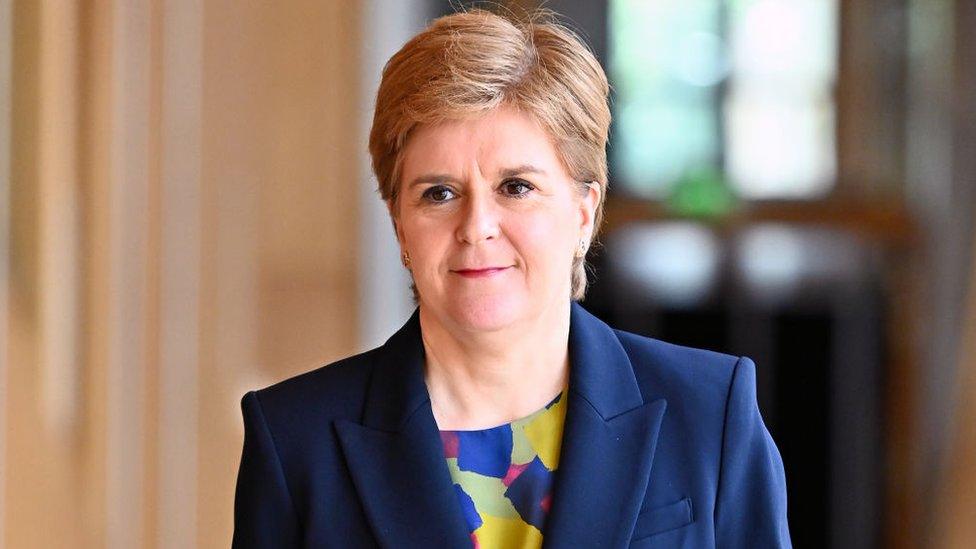Rent rises to be capped and eviction ban to remain
- Published

Rent rises are to be capped at 3% and evictions will remain banned under Scottish government plans.
Tenants' rights minister Patrick Harvie announced the move - which will be subject to parliamentary approval - pledging to amend an emergency bill.
The bill was passed last year to tackle the cost-of-living crisis with most rents frozen until the end of March.
Private landlords will now be allowed to raise rents by a maximum of 3% but can apply to increase this to 6%.
Appeals can be made to Rent Service Scotland however landlords must have a valid reason.
Eviction enforcement will also continue to be suspended, except in certain circumstances.
The rent cap for student accommodation will also be suspended and unlawful evictions will still lead to damages equivalent to 36 months' worth of rent.
The Scottish government will be able to seek a further six-month extension beyond the 30 September expiry of the Cost of Living (Tenant Protection) Act.
"Our emergency legislation has helped protect tenants facing the cost-of-living crisis," Mr Harvie said.
"With many households still struggling with bills, it is clear that these protections are still needed to give tenants greater confidence about their housing costs and the security of a stable home.
"While the primary purpose of the legislation is to support tenants, I recognise that costs have been rising for landlords too.
"That's why we intend to allow those in the private sector to increase rents by up to 3%, with a continued safeguard allowing them to apply for larger increases to cover specified rising costs they might be seeing as landlords."
'Crisis of availability'
He added: "By allowing increases in rent - capped well below inflation and limited to once per 12 months - we can continue protecting tenants from the minority of landlords who would impose unaffordable rent hikes.
"We will continue to carefully monitor the impacts of this legislation, working with tenants and landlords to protect them from this costs crisis."
The Scottish Property Federation cautiously welcomed the announcement, with director David Melhuish saying that allowing rents to rise by up to 3% from April would "give some confidence to key investors looking to build new homes for rent in Scotland".
But he added: "It will not wholly undo the negative impacts of the emergency legislation implemented in October 2022. In some cases, capital that was earmarked for building new rental homes in Scotland has already been diverted to projects in other parts of the UK.
"We must address the crisis of availability for those seeking to rent homes in Scotland, and this will require significant investment from the private sector."
In December "below inflation rent increases" were agreed, external by Scottish ministers and the social rent sector for 2023/24.
Ruth Gilbert, of the campaign group Living Rent, claimed payments in the social sector could be set to rise by as much as 11%.
"This announcement shows clearly that the rent freeze was never meant to support social tenants," she said. "The government has thrown social tenants under the bus."
- Published4 October 2022

- Published6 September 2022
